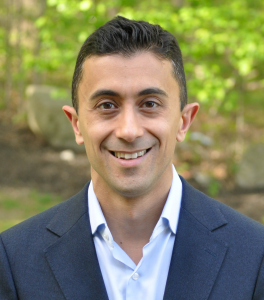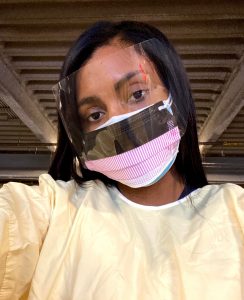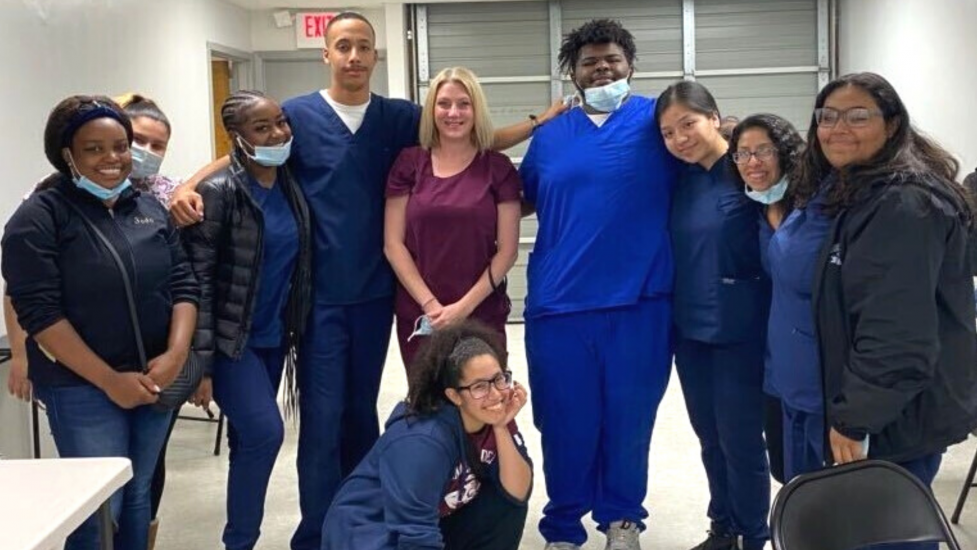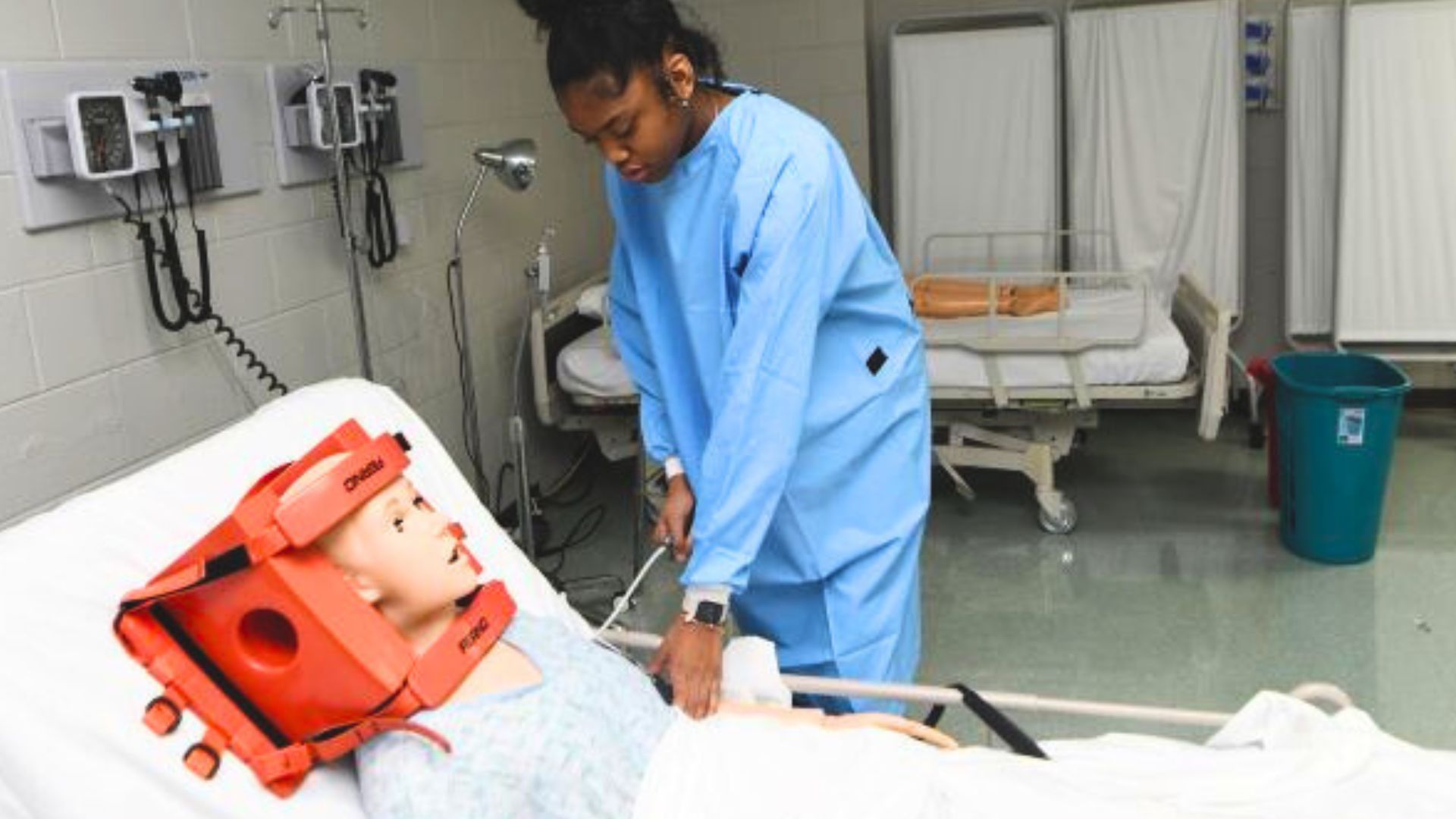As a former school superintendent, Paymon Rouhanifard says, “We, as a country, are not very good at providing structured transitions to postsecondary options.”
Rouhanifard, now the co-founder and CEO of Propel America, explains the organization’s mission, “Propel America helps 18-to-24-year-olds get a good job that leads to career mobility. We do that through a model we call ‘jobs-first higher education.’ What that entails – in under six months and at the cost of a Pell Grant – is a student gets an industry-recognized credential aligned to labor market needs with college credits that articulate into umbrella associate and bachelor’s degrees.”

The programming is currently offered in regions in five states, including New Jersey, Louisiana, Rhode Island, Massachusetts, and Pennsylvania. Rouhanifard says placed-based efforts are really critical.
“We hold a lot of recruitment events at high schools that are community-facing and not just for that school. Anchoring in local school systems is really important for us as we think about how to change systems in the longer run and to make sure that high schools help play a role to provide those structured transitions that we know students deserve.”
The Jobs-first Higher Education Program
Currently, Propel America is particularly focused on health care credentials, including, in some regions, certified medical assistant and sterile processing technician. Plans are underway to begin offering a pathway to a certified nursing assistant credential in Baton Rouge beginning next year. “First and most critically, we find employer partners who are hiring at scale who are in high-growth sectors. There’s also a career ladder built in,” explains Rouhanifard.
“So often, with entry-level jobs, there’s rung one and a chasm to rung two. Pharmacy technician is a great example of this. That’s a pretty decent paying job, depending on the geography, with a 10-to-12-week training program. The second rung on the ladder is a pharmacist. It’s no wonder that very few pharm techs make it to becoming a pharmacist because there’s no real investment.”
He continues, “The second thing we do is recruit and vet students. We’ve developed a curriculum that allows students to do career exploration, to really connect that to their own interests, and leave with a career map in terms of what they want to do. We provide this free of charge to school districts, open source it, and then provide them some light technical assistance.”
“The last thing we do once students are enrolled in our partner-led training program, that also creates college credits for them, we’re coaching. Weekly coaching sessions in cohorts of 12 to 15 fellows. There’s also a one-on-one session weekly. It’s a scripted curriculum that focuses on the mindsets and competencies they need to be successful in the job and into the future.”
Community-based Partnerships
Propel America is partnered with Chicago-based National Louis University (NLU) to offer the certified medical assistant credential. “It’s been a very hand-in-glove partnership where we are doing on-the-ground employer partnerships, recruiting, and coaching, and they’re delivering online content.”
Rouhanifard is excited about a new curriculum being developed with NLU to help meet a talent pipeline demand for BAYADA, a home health care company. “One of their biggest needs right now, which most people wouldn’t even know exists within the home health care company, is registered behavioral technician (RBT),” explains Rouhanifard.
“These are jobs that sit at the intersection of health care and education. It’s essentially a paraprofessional that works with students with autism spectrum disorder in a clinical setting, sometimes in a school setting. There’s massive demand for it.”
However, similar to the pharmacy tech, there is a significant chasm to the typical next rung on the ladder – special education teacher, according to Rouhanifard. The training for the RBT credential is expected to last seven to eight weeks. Total learning will run for approximately five months for – what is currently being called – behavioral technician plus. This will include additional coaching and training to support career advancement to afford fellows greater responsibility and higher wages.
Seeing the Bigger Picture
Propel America had not yet been founded when Flo Parra was in high school in Rhode Island. Luckily for her, she learned about the organization during her last year at Rhode Island College when her high school advisor emailed alumni with information about various opportunities.

Parra has been interested in health care since doing a high school internship at a hospital. But due to her work-study schedule while in college, she hadn’t had time to participate in any extracurricular opportunities.
In the fall of 2020, after being accepted into the Propel America program, Parra and the other fellows in her cohort participated in a boot camp, met their mentors, and got to know each other before they started their actual credential coursework.
“The course started in September and ran through December. We needed to put in at least 40 hours every week. A lot of reading, quizzes. We would meet once a week with the instructor via Zoom and then the majority of the work, we did on our own time. But there were deadlines to submit the work.”
For her monthlong, full-time externship, Parra was placed at The Miriam Hospital, part of Lifespan, in Providence, Rhode Island. “I got to do my externship at an infectious disease and immunology clinic.”
“I loved my internship so much, I also started volunteering once a week. I started working at the infusion center working with patients who were COVID positive. Just helping any way, I could.”

Parra completed, not just her CMA credential, but two others. “For the medical assistant class, we had to take a state test to receive the certificate. It had different components to it, basically some extra tests to get more certificates. That’s what I opted for. So, on top of my medical assistant certification, I got my phlebotomy certificate and my EKG tech certificate. Different job opportunities, for sure.”
Parra, who just graduated from Rhode Island College, continues to help with COVID testing at Rhode Island Hospital, another Lifespan facility.
She is also a per diem employee at University Orthopedics—available to work when needed. “I call in patients from the waiting room and complete all the intake information, basically allergies, medication, any past medical history, any current medical history, anything like that. And if the doctor specifically needs something, like taking someone’s blood pressure for pre-op.”
“There’s some patients that come in post-op, and I remove sutures or staples from them. They trained me very well when I first started. So, at some point, I was able to remove sutures and staples myself,” notes Parra.
What’s Down the Road
Parra says her participation in Propel America has been lifechanging. “Before, I thought, ‘Okay, undergrad and straight to medical school.’ Apart from finishing school and having just that straight mindset, I never really thought about anything else.”
“Getting into this program, I feel like I’ve expanded my horizons and there’s just so much more to do. There are so many careers in health care, so instead of just rushing into one, let’s take our time,” she says.
Looking forward, Parra says, “Ten years from now, I think medical school or my Ph.D. or both is what I’m going for. I feel like I’d have a general passion for both. I love medicine. I love the patient-to-patient contact, but I also love laboratory work and the behind-the-scenes. That’s very essential.”
“In the meantime, I will continue working as a medical assistant. And I love spreading the news to other people to join this class.”











